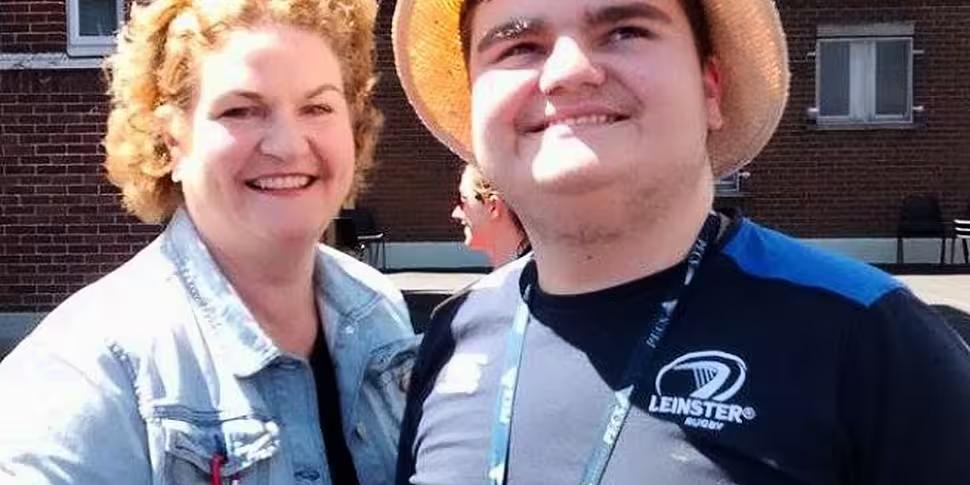While you are reading this article, somewhere in Ireland a mother, approaching 50 years of age, has locked herself in her bedroom while her 16 year old son, experiences a rage attack.
She is hoping that no-one will ring the doorbell because there’s ‘no telling what he might do’. She is hoping that her younger son has locked his bedroom door properly. She is hoping that her son does not harm himself in the grip of the rage he feels and that the attack will pass soon. Her husband is at work, checking his phone incessantly to see if his family are safe.
This is a family who are watchful and anxious, a family who have always done the right thing by the son that they love, but can now no longer manage him without specialised help. You wouldn’t think it could happen in 2016, but this is a family who have asked the HSE for appropriate mental health services for their severely autistic and learning disabled son, only to be told there is no help available.
This situation is more common than you would think. The autism spectrum is very broad, and while it is not always the case, teenagers with ASD (Autism Spectrum Disorder) can be extremely challenging to care for and can, in some cases, pose a real risk to themselves or to their family members.
It is often the case that teenagers with ASD have an intellectual disability along with autism so they might have the cognitive abilities of a much younger child and the strength of a man. Also, they are not exempt from the normal hormonal activity and the mood swings of a neuro-typical teenager, and all that can go with that.
But, in addition, teenagers with autism have a high likelihood of acquiring a mental health condition. According to Professor Louise Gallagher of Trinity College, "the incidence of mental health problems occurring in teenagers with ASD is really high. Up to 80% of young people with ASD might suffer anxiety disorders, and many develop mood disorders as they move from adolescence into adult life".
Complex needs, like those teenagers with autism experience, require specialist mental health and psychiatry services, services their families say they cannot access. Often, within the HSE, there is no cross-over between disability and mental health services – you are either in one or the other.
Jacinta Walsh is mother to Sam (16) who has autism and is learning disabled. Jacinta featured in the ‘Voices From The Spectrum’, series which aired on the Pat Kenny Show during Autism Awareness Month.
Life for families of teenagers with #autism in Ireland- Listen to part-3 in our series https://t.co/2cCnVYV3o0 #pknt pic.twitter.com/itC0lwkZVP
— Pat Kenny Newstalk (@PatKennyNT) 26 April 2016
In the third of four reports, Jacinta described how she went looking for services for her son: "Like a lot of children with autism, Sam fell between two stools. We tried to get to see the mental health services CAMHS, but they wouldn’t see Sam because he had more than a mild learning disability.
"There was nobody who could see him in the disability team, he was diagnosed by the HSE when he was three and he hasn’t seen a psychologist since. He will be 17-years-old in July. There was nobody in the disability team who had any level of knowledge or expertise, or was able to guide us as to where we should go. We really didn’t know what to do, or who we should see".
The problem within the HSE is not just a matter of the separation of services, known as the silo effect, it’s also a matter of resources. When Jacinta identified a suitable residential assessment service being offered by a private provider (who are often contracted by the HSE to provide services), she applied, but her application for funding was turned down last month.
This was a huge blow for Sam’s family, who say they have no plan B. It also came as a surprise to the people in their local HSE centre, people who know her case and the level of risk involved.
Professor Louise Gallagher, who has experience of working with families in Jacinta’s situation, believes "we need to step up to the plate. People live in our society with these conditions and they have to be supported, they are conditions, just like any other physical condition and they need the right treatments and the right therapies and we know what to do for them."
But for now, Jacinta’s family and families like hers continue to live locked inside their own homes. They continue to deal with their son’s condition without the support they need. They continue to be at real risk. Their requests for help seem to fall on the deaf ears of HSE management. Hearing Jacinta’s story, it’s hard not to wonder, what will it take for them to listen?
Listen to Part 3 of 'Voices from the Spectrum' in full here:









